
With rue in hand, guided by the sacred smoke of incense and the legacies of their grandmothers, the Indigenous women of the Ecuadorian Amazon met in the streets last week to commemorate their ongoing fight to protect the Amazon and to bring visibility to their rights, their concerns and to demand the well-being of their bodies and territories.
Women from different Indigenous nationalities traveled from their territories to the city of Puyo on March 8 to march through the city's streets as they do every year on International Women's Day as a symbol of their ongoing resistance and to demand equality, a dignified life, health, the defense of their territories and to raise their voices against violence.

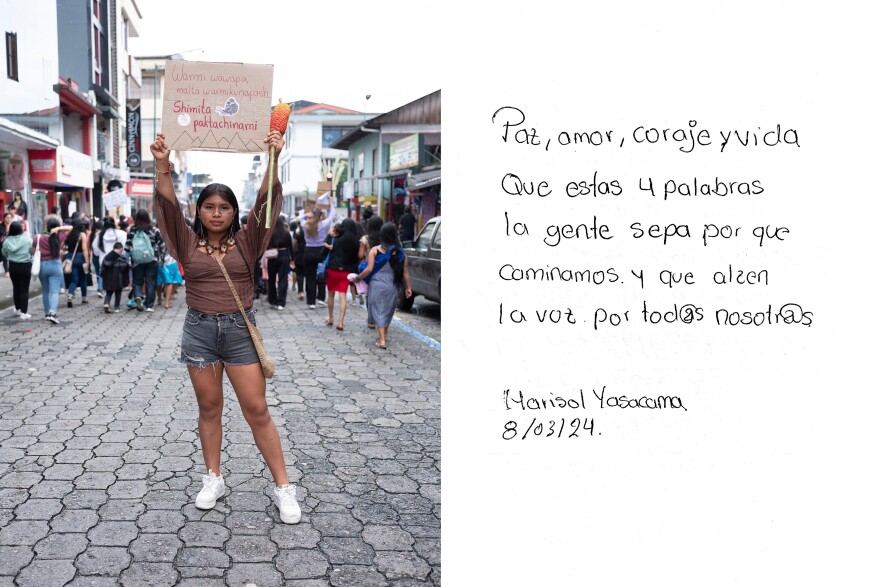
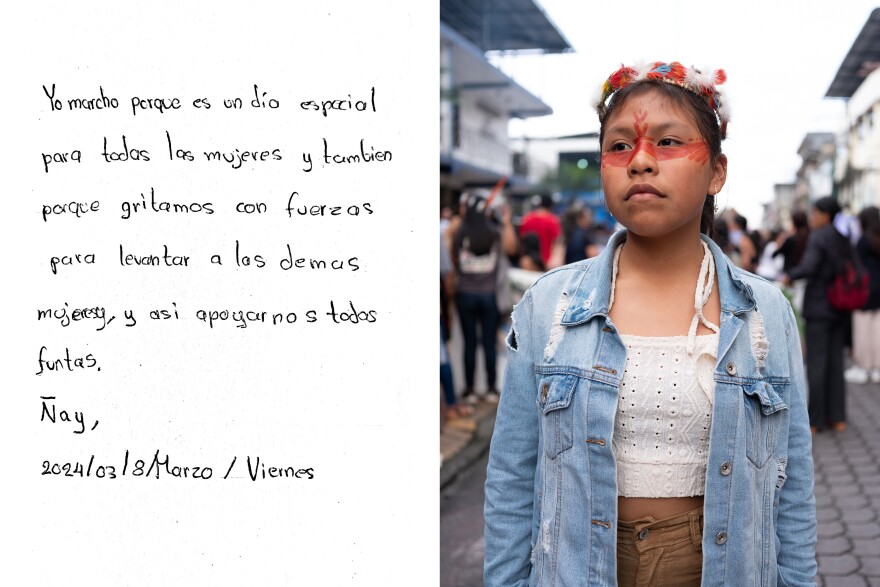

This year, the march was self-organized by women's collectives and grassroots organizations. Among them were Mujeres Amazónicas, Warmicuna Foundation, Sacha Warmi Collective, Socorro Violeta, Awana Collective, Waorani Women's Foundation, Pastaza Unida y Solidaria, and Casa de la Mujer.
The event brought together around 100 women who marched with placards that read "Free," "If your voice does not reach we will all shout for you," "Today not all our voices are here because from the grave you cannot shout" and "you get tired of hearing it, we get tired of living it,"as the women chanted slogans of resistance and chanting out load slogans of resistance, one of them was:
Alert!
Alert!
Alert who walks
Of the women's fight
For Latin America

The march resounded throughout Puyo until it made its way to the Pastaza governorate, where the women congregated in a representation of their strength and diversity. Women from Ecuador's Indigenous nationalities, such as Sápara, Kiwcha, Shiwiar, Achuar, Waorani and Siona, accompanied by women from nearby cities, expressed the individual and collective struggles they encountered daily in their territories and around the country.
The women expressed their rejection of the hike in the country's value added tax rate, budget cuts to universities, and the ongoing destruction of the country's rainforests, policies imposed by the country's current president, Daniel Noboa. Raising awareness about the importance of defending ancestral territories from extractive initiatives in Indigenous communities and guaranteeing the rights of women nationwide was a clear statement marchers made during the gathering.
During the march I asked several women if they could answer on a sheet of paper the question "why are you marching?" – these are some of their responses:
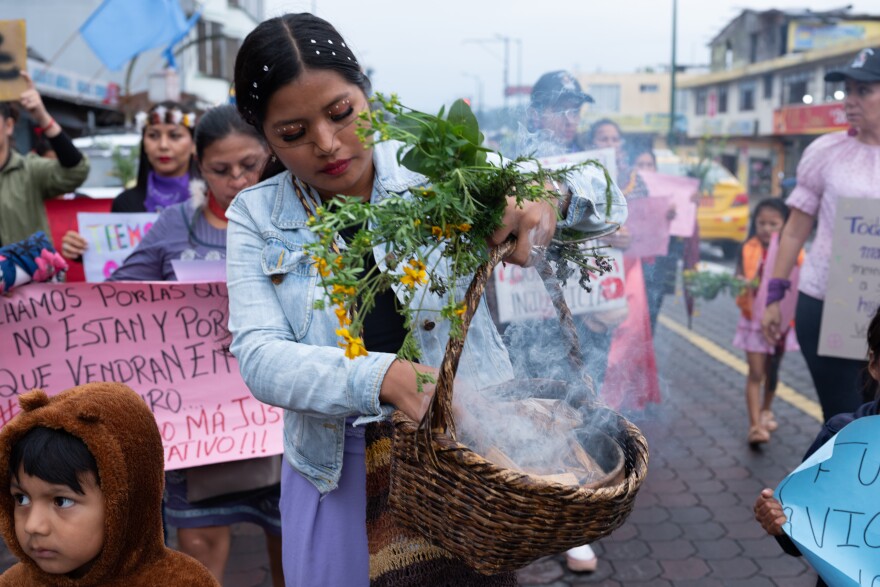

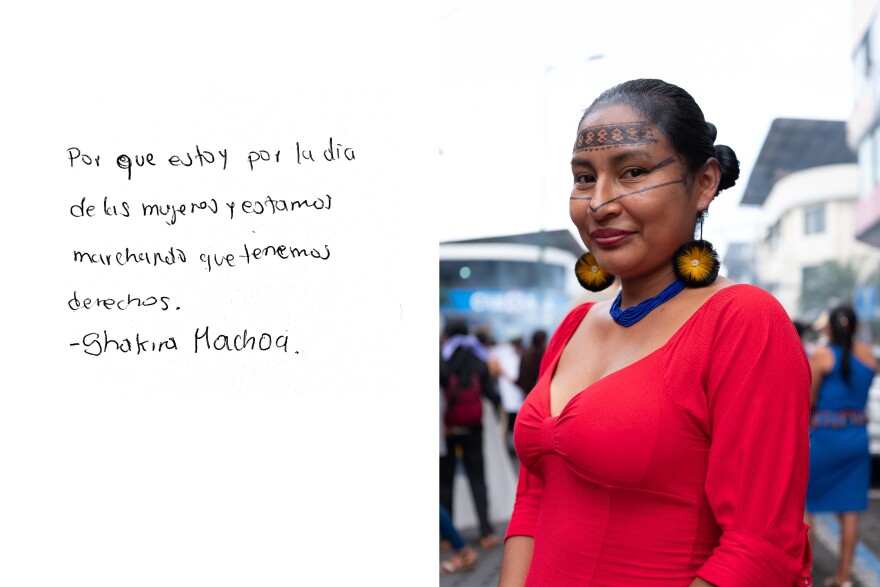
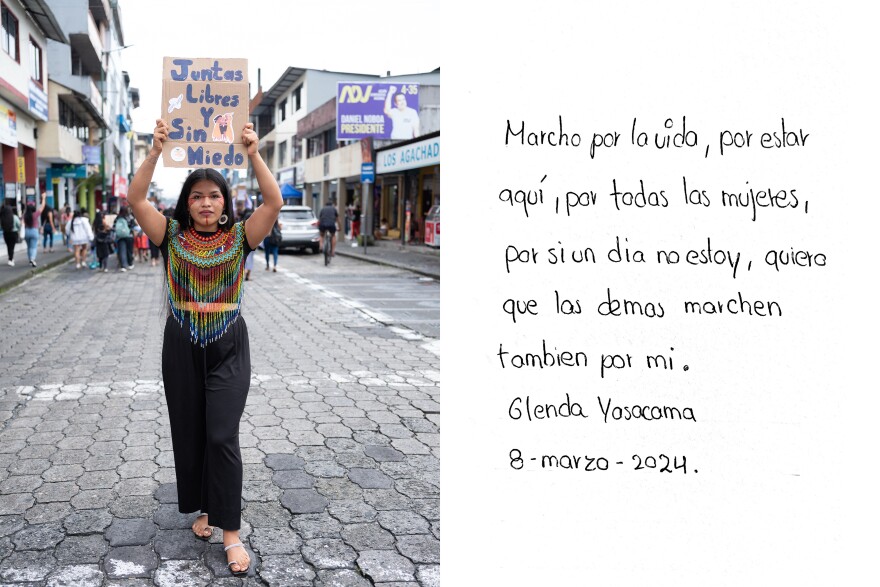
Tatiana Lopez is a documentary photographer based in Ecuador and the United States. You can see more of her work on her website, tatianalopez.space, or on Instagram at@tatianalopez_om.
Photos edited by: Virginia Lozano
Text edited by: Zach Thompson
Copyright 2024 NPR. To see more, visit https://www.npr.org.


